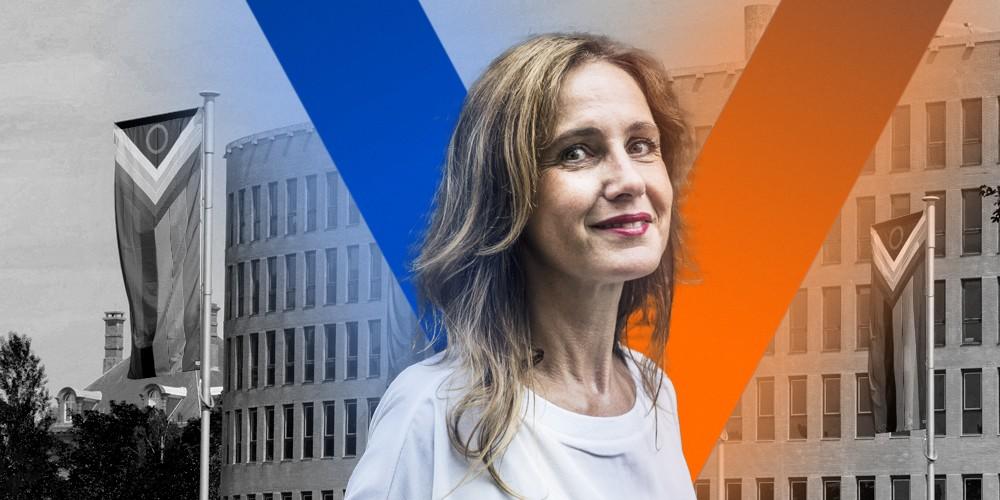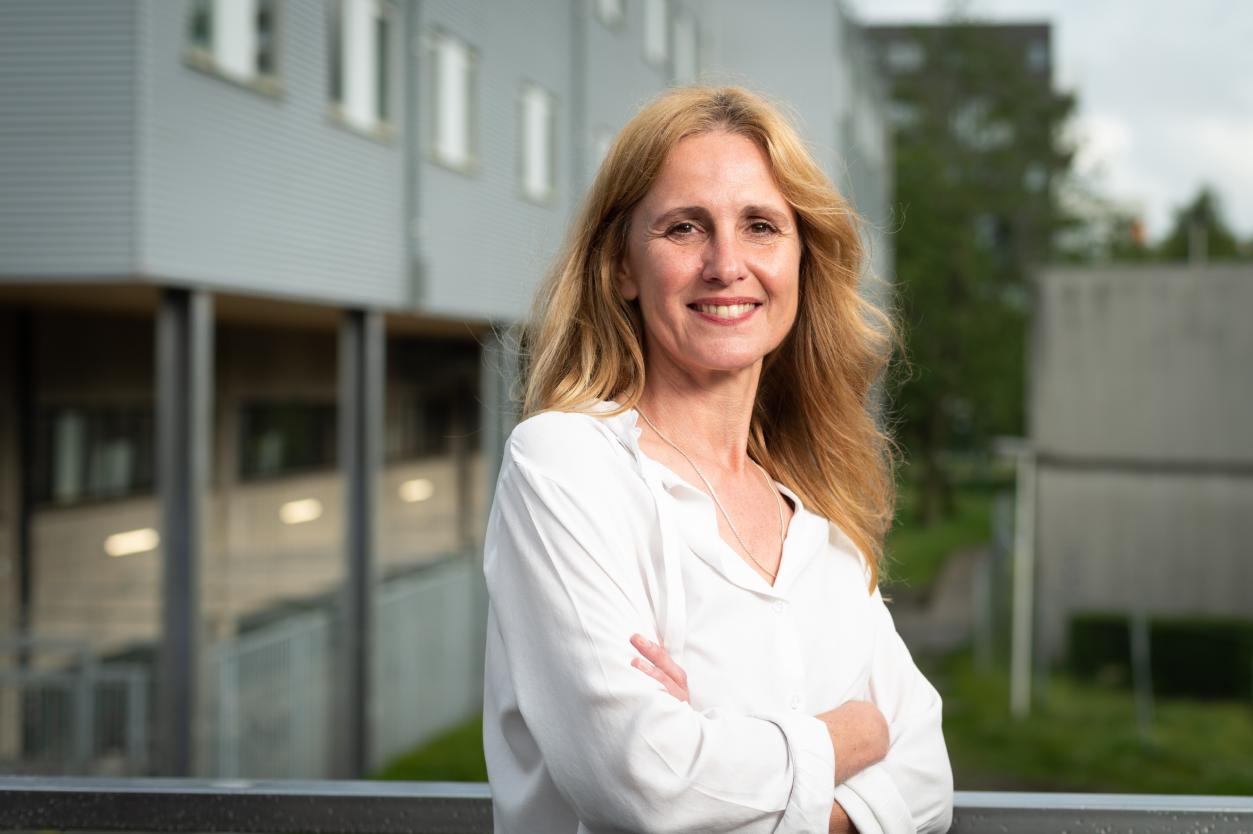
The VUB cherishes the ‘V’ of freedom (vrijheid). It guides our story like a compass for resistance and progress. In Vrije Geesten, 32 researchers and public thinkers share their passion for freedom and what the ‘V’ in VUB means to them — in their lives, their work, and their field of expertise. They challenge us to look at the world with a critical mind and an open heart. One of them is Karen Celis, research professor in the Department of Political Science at the VUB.
Democracy and equality aren’t things you simply are – they’re things you do. In other words, they involve an ongoing process of self-reflection: constantly questioning how democratic decision-making, inclusivity and equality can be improved. When it comes to equality and inclusion, new issues and contexts are always emerging. That’s why universities must remain agile and willing to learn. To be an inclusive university means, for instance, welcoming new groups and generations who bring fresh research questions. These may well be highly critical questions – ones that challenge not just societal systems, but also the way we function as an academic community. Unsurprisingly, the most challenging questions often come from groups that were previously excluded. As uncomfortable as that may feel, a university that holds freedom and equality in high esteem should embrace this. Not only out of principle, but also because innovation – and therefore excellence – might very well come from exactly those quarters.
Critical thinkers must be free to carry out research as equals. That’s what VUB stands for, and it sets the bar high for itself in doing so. In this way, the university places itself at the heart of a broader public debate around freedom and equality. These two fundamental democratic values are often seen as being at odds with one another. The notion that equality comes at the expense of freedom is a persistent one. You can see it, for example, in the debate around quotas, where greater equality between men and women is portrayed as limiting individual freedom. But that’s a flawed line of reasoning. Take the example of gender quotas in politics: voters never have complete freedom to vote for whomever they like – party elites make those decisions behind closed doors.
“We were already living in a post-truth era, and now universities are being painted as the enemy too”
Freedom of expression also raises the question of freedom versus equality. To participate fully and equally in society, there must be boundaries – for example, limits on racist, sexist or homophobic remarks. Some interpret this as “you can’t say anything anymore,” seeing it as an undemocratic restriction on free speech. But it’s not a restriction – it’s increased pushback. Labelling comments as racist, sexist or homophobic is itself an act of free speech and of claiming one’s place as an equal. Freedom and equality can absolutely go hand in hand for multiple groups. But again, that requires uncomfortable conversations, and a willingness to stay open, to learn, and to act. That’s what I mean when I say democracy is something you do.

Universities – and VUB in particular, given its core values of freedom and equality – occupy a central place in the democratic story. Recently, the far-right party Vlaams Belang launched a campaign targeting what it calls “the poison of woke and radical leftist ideologies in universities.” The party wants to place universities under supervision to prevent this so-called poison from “seeping into” future generations. In this narrative, universities are painted as something negative – a striking shift, considering many of us grew up seeing them as inherently positive institutions: places of quality education, social mobility, and democratisation. We were already living in a post-truth era, and now, with an anti-democratic project like that of Vlaams Belang, universities are being cast as a source of danger. Their attacks focus especially on efforts within universities around equality and justice – in teaching, in research, and in institutional policy.
“It’s more important than ever for universities to show that we’re not against the people, but on their side”
This situation demands careful consideration – both internally and in the messages we send outwards. The humanist values at the heart of VUB are fundamentally democratic values, and we must protect them against anti-democratic forces. The university has a role to play here – not only for its own sake, but for society as a whole. We must not allow ourselves to be drawn into their simplistic narrative of woke versus anti-woke. We need to clearly understand that the attack on universities is part of a wider anti-democratic agenda – and that opposition to equality is being used as a vehicle for that agenda. A party like Vlaams Belang is, at its core, against equality.
But instead of engaging directly in debate with them, we must speak to the wider public. It’s more important than ever for universities to show that we’re not against ordinary people, but firmly on their side. We must communicate our democratic values – freedom, equality, and solidarity – with warmth and clarity. We must show that we are a force for good in society. Unfortunately, we can no longer assume that the majority of people are still convinced of that.
Bio Karen Celis
Karen Celis is a research professor in the Department of Political Science at VUB and co-chair of the RHEA Expertise Centre for Gender, Diversity and Intersectionality. Her work combines theoretical and empirical research, focusing on the political representation of social groups and on intersectionality. At the VUB Centre for Democratic Futures, she investigates the quality of democracy.
*This is a machine translation. We apologise for any inaccuracies.